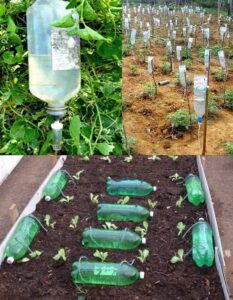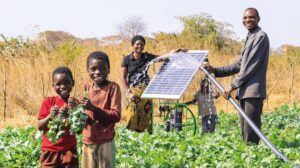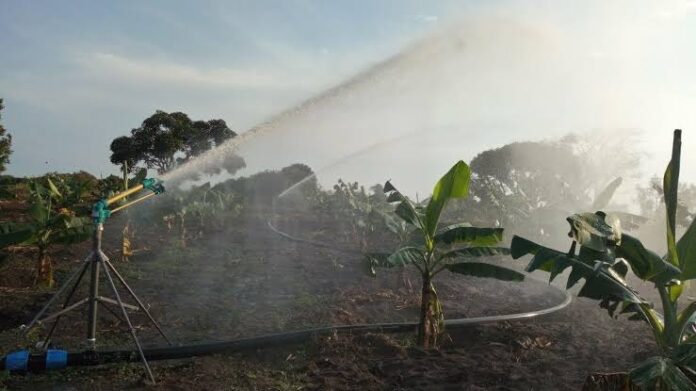Known as the “Pearl of Africa,” Uganda is famous for its rich soils and climate, but it also faces difficulties, including unpredictable rainfall, which makes irrigation farming necessary.
Irrigation farming in Uganda enhances food security, increases crop yields, diversifies crops, and promotes economic growth by artificially applying water to support crop growth in areas with insufficient rainfall.
In 2018, President Yoweri Kaguta Museveni introduced a simple and cheap “bottle irrigation” as a means to enable farmers with limited cash to acquire advanced technology to successfully water their crops. His approach was widely adopted by many farmers who adjusted to using drip irrigation.

This practice reduces dependence on seasonal rains, improves crop health and productivity, and boosts agribusiness.
Several irrigation methods are utilized in Uganda, tailored to different terrains, water availability, and crop types, including surface irrigation, where water is distributed over the field by gravity and is cost-effective but requires flat land and abundant water.
While delivering a New Year message, President Museveni emphasized the use of drip irrigation, which delivers water directly to the root zone of plants through a network of pipes and emitters, conserving water and being ideal for horticultural crops.
He said the government would support farmers to acquire sprinkle irrigation, which sprays water over crops using rotating sprinklers and is suitable for areas with limited water and uneven terrains.
Furrow irrigation, where water flows through channels or furrows between crop rows, is commonly used for crops like maize and sugarcane.
Several technologies have been introduced to deliver various types of irrigation to farmers, including a solar-powered irrigation system being offered to residents on a loan basis.

Uganda faces challenges in irrigation farming due to high initial costs, limited water resources, knowledge gaps, and environmental issues like waterlogging and soil salinization.
The Ugandan government has prioritized irrigation farming for food security and economic development through initiatives like the National Irrigation Policy, financial subsidies, and public-private partnerships to expand and modernize irrigation systems.
Uganda’s irrigation farming can be improved by enhancing farmer training, expanding financing access, investing in research and innovation, and promoting community-based water management systems for sustainable and equitable water use.
In the face of climate change and unpredictable rainfall, irrigated farming is essential to maximizing Uganda’s agricultural potential, guaranteeing food security, and promoting economic progress.
Uganda can improve its agricultural sector by addressing issues like high prices and limited water access, promoting government programs, and innovative solutions and community-based approaches.
In addition to increasing crop output, irrigated farming will strengthen resilience, provide livelihood security, and support the sustainable development of the country if it is implemented consistently.















